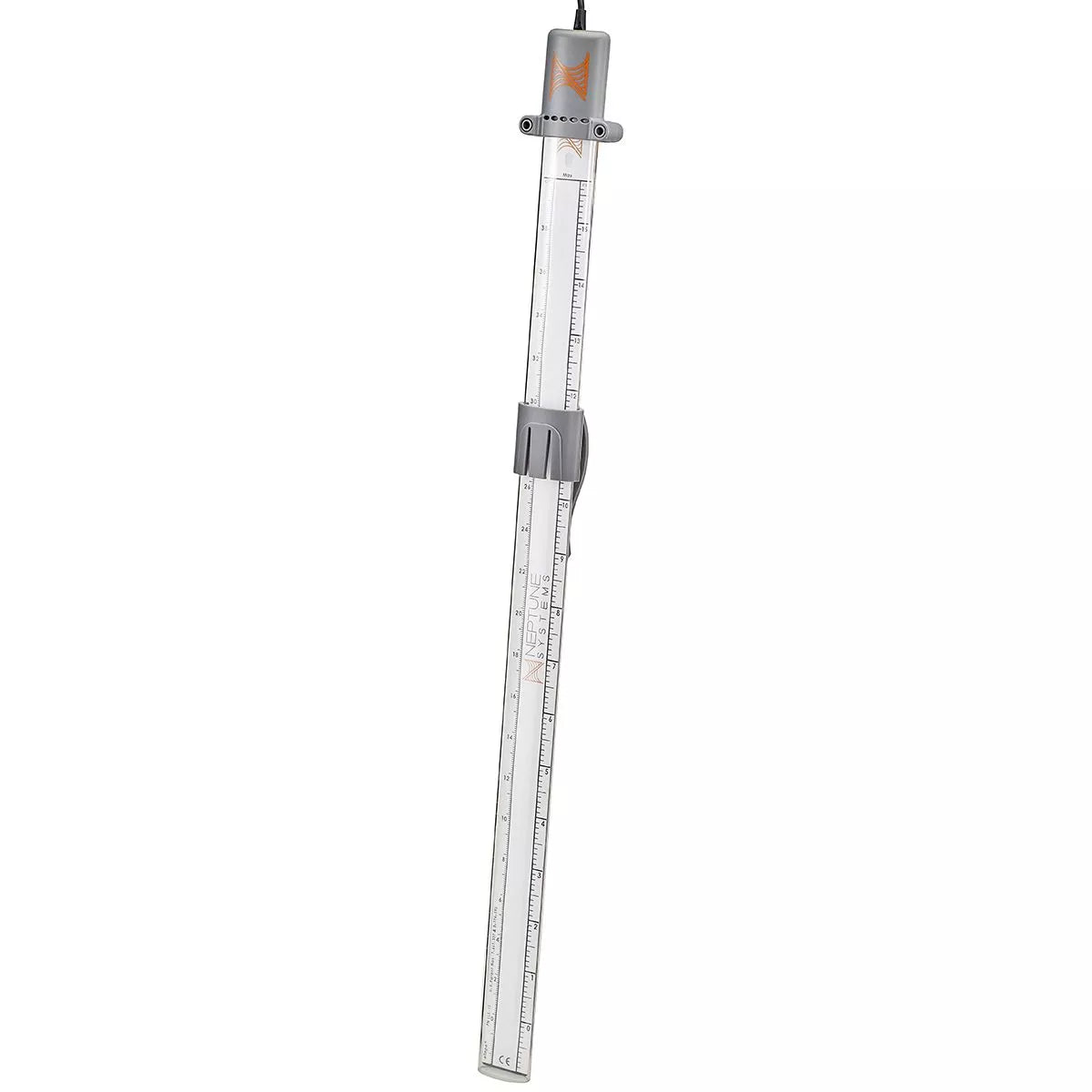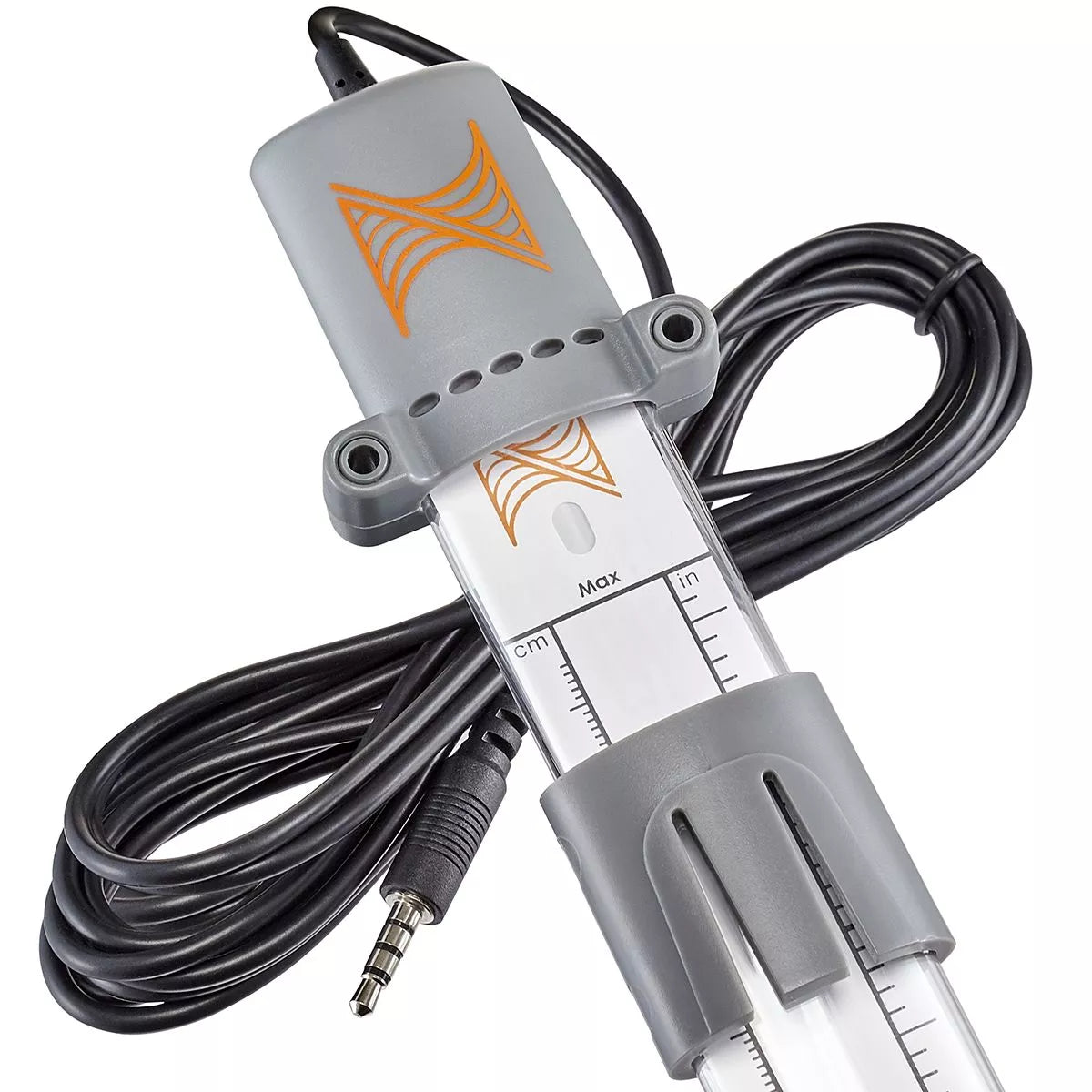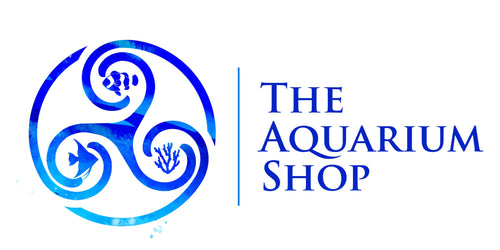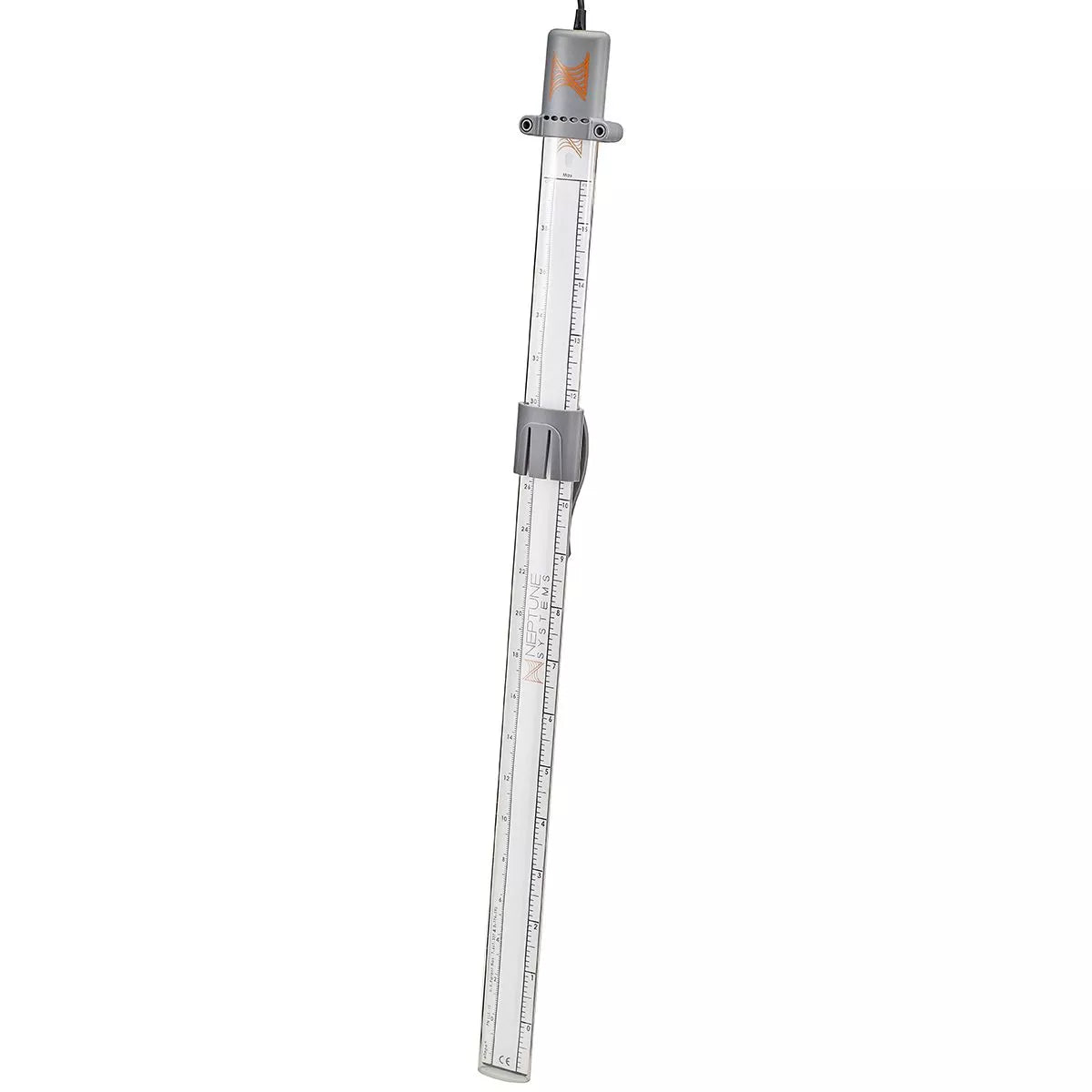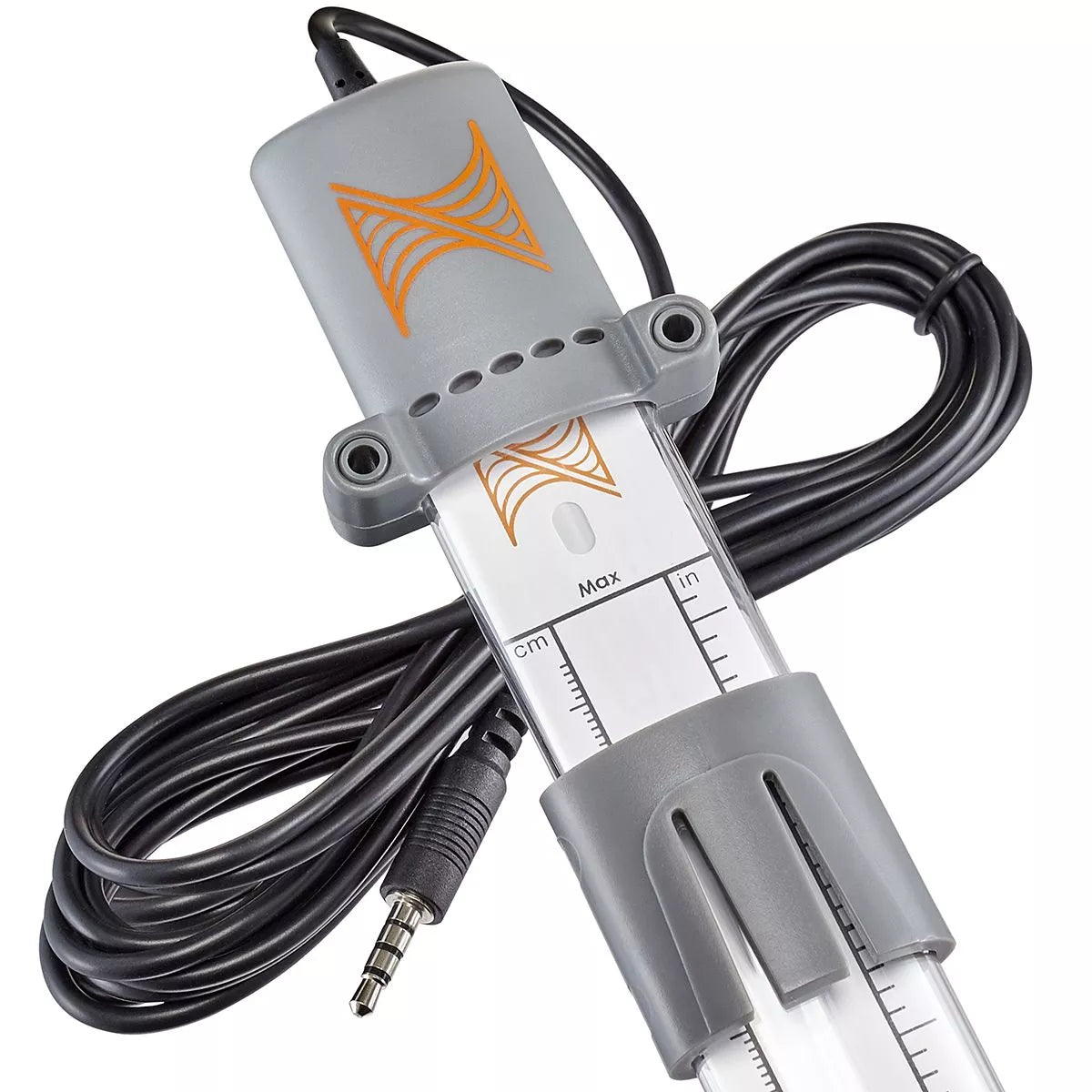LLS Liquid Level Sensor - Neptune Systems
LLS Liquid Level Sensor - Neptune Systems
Neptune Systems
Couldn't load pickup availability
Liquid Level Sensor (LLS)
Never before offered in the aquarium industry the LLS Sensors allow for the measurement of water depth in inches or centimeters. Available in four different sizes- 4″, 15″ 23″ and 35″ each sensor has a special place in helping understand the water level in the sump, aquarium, reservoirs, and other liquid-holding containers. No longer does one need to physically look to observe how much water level is above or below a specific point, but now simply open the Apex Fusion app and observe.
Liquid Level Sensor- 4″ (LLS-4)
The 4″ LLS is the smallest of the four sensor offerings. It is the perfect fit for small reservoirs for small sumps, ATO reservoirs and additive containers. This can be a great solution to double check that liquid additions of your additives match your dosing solution over a period of time. For example, if you dosed 250 mL additives over two weeks and you know each inch is 100 mL, then the additive reservoir liquid level would have decreased exactly by 2.5″.
Liquid Level Sensor- 15″ (LLS-15)
Probably the most popular sized level sensor this is the ideal sensor for your average containers used in and around aquarium. This will be the ideal sensor for measuring the return pump section of your sump. You will be able to make sure that the water level stays consistent and any drops or gains in water level can be carefully examined to make sure there are no changes to your salinity. Further, if, for example, the ATO reservoir is empty and the water level in the return pump area starts to fall, then if a COR pump or Vectra pump (coming soon ), you can turn the speed of the return pump down to prevent cavitation.
Another great application of the 15″ sensor is to place in your ATO reservoir. Especially if you have a reservoir you need to fill manually, often times you simply look at the reservoir while going out the door and know if it is enough water to cover the evaporation rate while you’ll be gone. If not, you usually stop what you are doing and take care of it. Now, simply pull out your Apex Fusion App and know without even looking!
Liquid Level Sensor- 23″ (LLS-23)
The 23″ sensor is a bit larger version of the 15″ sensor and can be utilized in similar applications to the 15″ but for larger sized-aquariums. A great application to consider is utilizing these advancing a roller mat.
Liquid Level Sensor- 35″- (LLS-35)
The largest of the LLS sensors is the 35″ sensor. This sensor is to be used for large reservoirs that are often utilized for saltwater reservoirs for manual and automatic water changes.
LLS may be used with any A2 Apex equipped with a FMM, or with any A3 Apex using either the embedded FMM ports or with a separate FMM. LSS are not backward compatible with A1 Apexes (Apex Classic models).
The LLS sensor can connect to any available FMM port in the Apex System. Liquid will enter the plastic envelope around the thin material of the sensor. Once the liquid is in contact with the sensor material the LLS uses a patented resistive sensing technology to accurately and reliably measure the liquid level in a container.
Included with each LLS sensor is a clip that allows for the mounting of the sensor to the side of the sump, aquarium or container. Have a Euro braced sump? Don’t worry you can simply mount the LLS sensor to a baffle inside the sump.
The LLS’ wire is 3 meters in length.
Generally the sensors respond to liquid level changes at a rate of about fifteen seconds per inch of water level change. So if the water level was suddenly decreased three inches, then it could take up to forty-five seconds to reflect this change. While quick depth level changes are uncommon in an aquarium, and, typically, changes are reflected more quickly than this, for this reason, it is best practice not to use the LLS for immediate control needs— like auto top-off control.
Once calibrated the LLS is accurate to about two-tenths of an inch.
Yes and no. The sensor aspect (the white ruler section) is obviously suppose to be in your water to measure depth!
But also no– The components in the head of the LLS are fully encapsulated in epoxy, but the LLS is not intended to be fully submerged. Care should be taken when selecting the proper length of LLS and installing it to ensure that the water level never exceeds the uppermost graduation mark.
